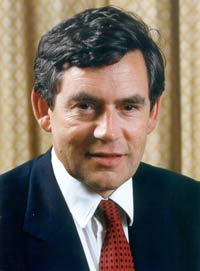Britain's PM arrives in Iraq to meet troops
Gordon Brown arrived in Iraq Tuesday to meet troops and lawmakers - days before he makes a key announcement on whether he will cut British forces. He first went directly to a meeting with Prime Minister Nouri al-Maliki.

Brown, making his first visit to Iraq as British leader, was expected to address London's Parliament next week on the future of Britain's role in the country.
Brown and al-Maliki planned to settle on a date for local security forces to take charge of Basra province, the last remaining southern region under coalition control, officials said.
"He's going to want to discuss the developing security situation in Basra and the prospects for Iraqis taking full responsibility and the timescale for that," a British official said, on condition of anonymity because of the sensitivity of talks.
Brown aims for Britain to focus on economic development as its security role reduces and planned to question al-Maliki on the progress of political reconciliation, he said.
Despite ongoing tensions between rival Shiite factions in Basra, the city had avoided the chaos some predicted would ensue after British troops left their last city center base, the official said.
Britain's defense ministry said rocket and mortar attacks on their base at Basra airport had fallen sharply in the last month, with only a few attempted strikes.
Karim al-Miahi, the head of the Basra security committee and a member in the provincial council said, "The withdrawal of the British forces has had a negative effect on security in the city. Iraqi forces still are not able to control the situation which has deteriorated over the past three weeks. There has been an increase in assassinations of police and religious leaders. As for the areas around the British base, the situation is more stable. Shelling there has stopped."
Abdul-Maunim Karim, 50, a retired sailor who lives near the presidential palace now vacated by the British, agreed that area there was quieter because the shelling had stopped. "But throughout the city violence remains at about the levels before the British troops left."
Ex-prime minister Tony Blair was greeted with a salvo of mortars as he made a final visit to the camp before leaving office in June. Soldiers at the time reported as many as 10 strikes a day.
Subscribe to Pravda.Ru Telegram channel, Facebook, RSS!





